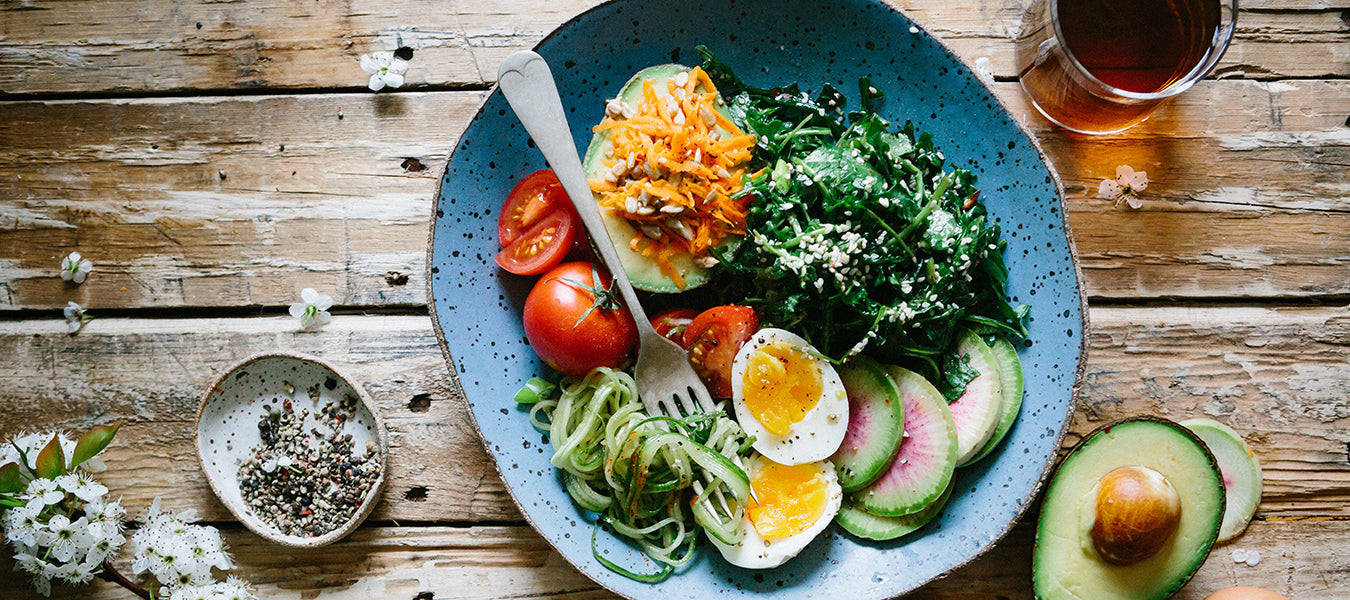
How Diet Affects Hair Loss
What you eat plays a very important role in almost every aspect of your overall health. Your hair is included in this too. Some nutrients are better at protecting your hair than others so it is important to make sure that you are not deficient in these nutrients. So what are these nutrients and how do they affect your hair? Continue reading to learn more about some nutrients that affect hair loss.
Nutrients That Affect Hair Loss
There are a plethora of nutrients that affect hair loss. They can be very harmful whether you are deficient in that nutrient, or if you get too much and have a surplus of it. Due to this, it is important to watch your intake of certain nutrients to make sure that you are getting enough while still not getting too many. Some examples of these are:
Vitamin A
Vitamin A is a fat-soluble vitamin that is found in many foods and it is added to supplements for those who do not get enough. It does many things for the body such as maintaining proper vision and immune system function. If you eat a balanced diet, supplementation is not needed.
It is important to not go over the recommended daily amount of 1300 mcg each day. This is important because consuming too much could lead to vitamin A toxicity and cause hair loss. In a case report, one 60-year old man taking excess amounts of vitamin A experienced many symptoms such as liver failure, muscle soreness, and even alopecia. Alopecia is defined as the partial or complete absence of hair from areas on the body where it normally grows.
Vitamin B
B vitamins also play an important role in keeping your body healthy. Deficiency in a few of these vitamins has been linked to a loss of hair. The four B vitamins that have been linked to hair loss are Riboflavin (B2), Biotin (B7), Folate (B9), and B12.
Riboflavin
The National Institutes of Health state, "Riboflavin deficiency, while extremely rare in the USA, can cause hair loss." This is due to the fact that it comes from a wide variety of foods such as eggs, lean meats, and green vegetables.
Biotin
While a biotin deficiency may not cause you to go completely bald, it can cause your hair to thin and cause loss of hair on other parts of your body. You can get Biotin from meats, fish, eggs, and certain vegetables. It is also found in many supplements like our Skin Rescue + Renew.
Folate
Folate is found in leafy green vegetables and many other foods are fortified with a form of it called folic acid. This makes a deficiency in this vitamin uncommon, but it still is possible to have. A folate deficiency will not directly cause hair loss, however, it could cause the color of your hair to become washed out or gray.
B12
Vitamin B12 can be found in many foods such as beef liver, fish, eggs, and poultry. Unless they are fortified, plant foods do not contain B12. This can make it hard for vegetarians and vegans to prevent deficiency. Luckily there are B12 supplements available for those who need a boost of it.
Iron
According to The National Institutes of Health, "Iron deficiency is the world's most common nutritional deficiency and is a well-known cause of hair loss." There are in fact, many studies that show that iron deficiency is a cause of this. Women tend to experience hair loss with iron deficiency more than men do. The NIH states that the biggest cause of iron deficiency in otherwise healthy women is menstruation. To combat a deficiency, you can eat foods that contain adequate amounts of iron such as lean meat, seafood, and poultry. It is also found in iron-fortified cereals and bread.
Pregnant women may also lose hair or experience thinning out during their pregnancy. This could be due to them not getting enough iron to support themselves, along with their growing child. Check out this article for some other vitamins that are important for pregnancy. Our Prenatal Multi supplement is an excellent source of iron with 18 mg per serving.
Vitamin C
Vitamin C is a water-soluble vitamin that comes from glucose metabolism. It classifies as a nutrient that affects hair loss because it plays an essential role in iron absorption. If you have hair loss due to an iron deficiency, it may be wise to up your vitamin C intake along with your iron intake. You can get vitamin C from many foods such as:
- Citrus Fruits: Oranges and Grapefruits are the most common sources.
- Bell Peppers: These contain more vitamin C than any of the citrus fruits.
- Fortified Foods: examples of these include cereals, milk, and bread. You can check the label on your product to find out if it is fortified.
- Here at Liquid Health, we have many products that contain vitamin C. Some of them are: Attention, Children's Complete Multiple, Complete Multiple, and many more.
Conclusion
There are many nutrients that affect hair loss. To recap, these are vitamin A, riboflavin, biotin, folate, vitamin B12, iron, and vitamin C. You can avoid hair loss by ensuring that you are getting enough of these nutrients and also by not getting too much.
For more information about any of the products mentioned in this article, please visit our website here.
Be sure to also check out one of our recent posts to learn more about some Bad Hair Habits.
Sources:
https://www.ncbi.nlm.nih.gov/pmc/articles/PMC6380979/
https://www.ncbi.nlm.nih.gov/pmc/articles/PMC5315033/
https://www.ncbi.nlm.nih.gov/pubmed/23772161
https://www.ncbi.nlm.nih.gov/pubmed/17133567


Leave a comment